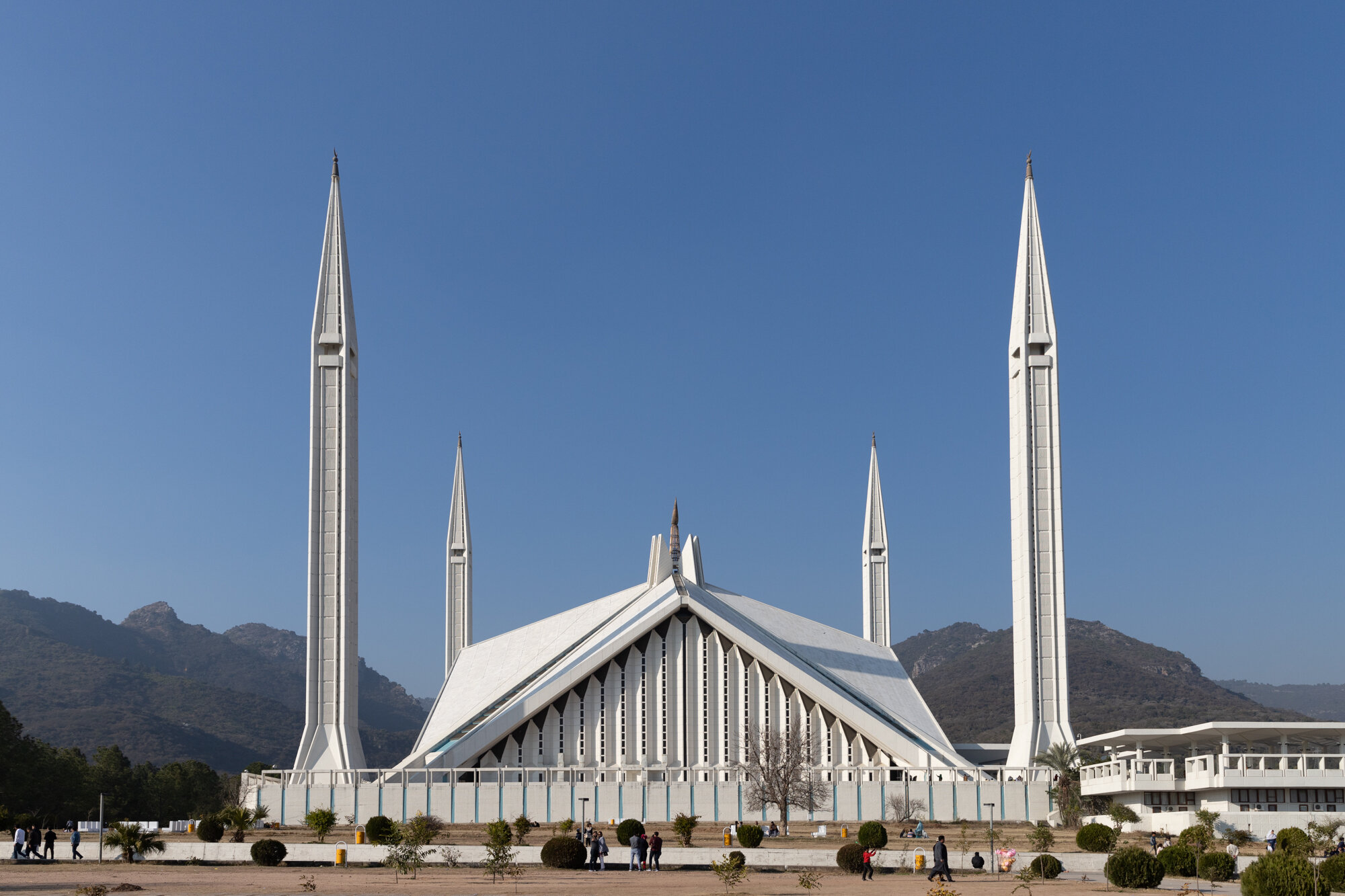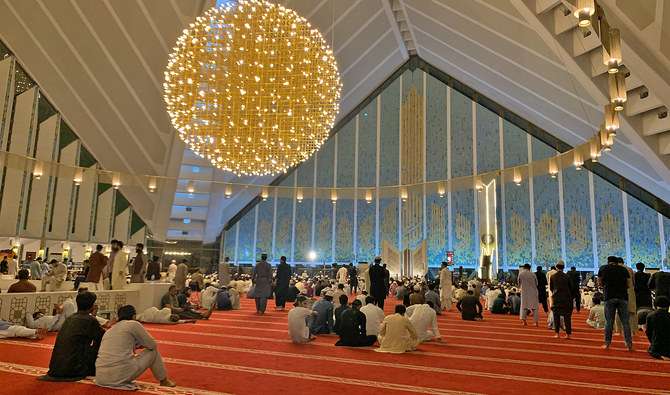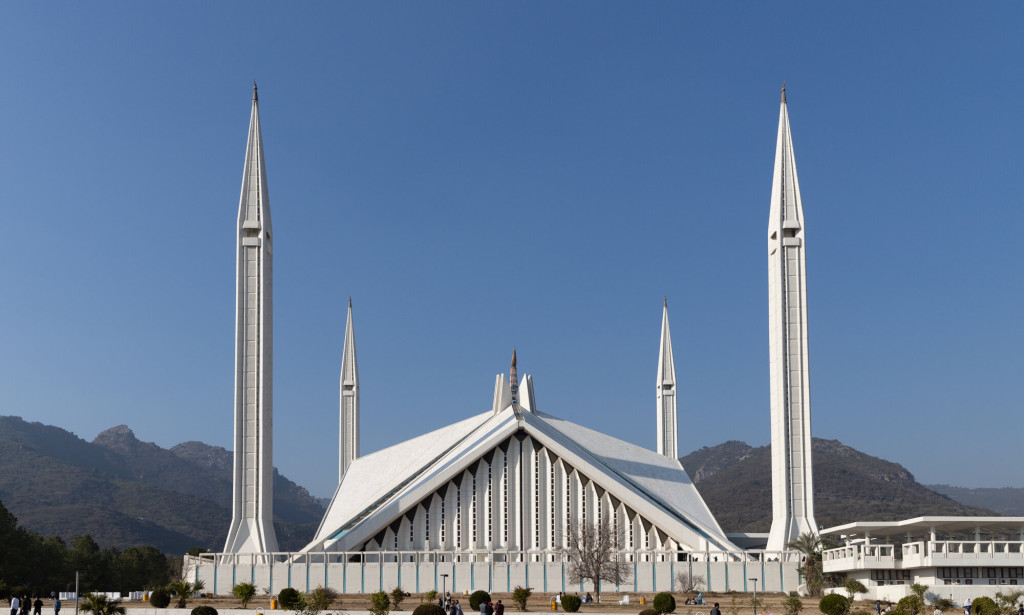 Introduction:
Introduction:
Nestled against the backdrop of the Margalla Hills in Islamabad, Pakistan, the Faisal Mosque stands as an architectural marvel and a beacon of spiritual devotion. Named after Saudi Arabia's King Faisal bin Abdul-Aziz, the mosque is not only one of the largest in the world but also a testament to the fusion of modern design and Islamic tradition. In this article, we delve into the rich history, stunning architecture, and spiritual significance of the Faisal Mosque.
History and Construction:
The idea for the Faisal Mosque was conceived in the late 1960s when Pakistan's President Ayub Khan sought to build a national mosque that would reflect the country's Islamic identity and heritage. After an international design competition, the winning design by Turkish architect Vedat Dalokay was chosen for its striking modernist style and innovative architectural features. Construction of the mosque began in 1976 and was completed in 1986, with funding provided by King Faisal bin Abdul-Aziz of Saudi Arabia, in whose honor the mosque was named.
Architectural Design:
The Faisal Mosque's distinctive design sets it apart from traditional Islamic architecture, yet it remains faithful to the principles of Islamic aesthetics and symbolism. The mosque's main prayer hall is housed under a vast concrete dome, inspired by the form of a Bedouin tent and supported by four towering minarets that soar skyward. The clean lines, geometric patterns, and minimalist aesthetic of the mosque's exterior reflect the influence of modernist architecture, while the interior is adorned with intricate marble and tilework, evoking a sense of tranquility and reverence.

Symbolism and Significance:
Beyond its architectural beauty, the Faisal Mosque holds deep symbolic and spiritual significance for Muslims around the world. As the national mosque of Pakistan, it serves as a symbol of unity, faith, and national pride, welcoming worshippers of all backgrounds and beliefs. The mosque's strategic location at the foothills of the Margalla Hills also imbues it with a sense of natural harmony and spiritual serenity, creating a sacred space for reflection, prayer, and community.
Cultural and Social Impact:
Since its completion, the Faisal Mosque has become an iconic landmark and a focal point for cultural and social gatherings in Islamabad. Its vast prayer hall can accommodate tens of thousands of worshippers, making it one of the largest mosques in the world in terms of capacity. In addition to daily prayers and religious services, the mosque hosts special events, lectures, and educational programs aimed at promoting interfaith dialogue, tolerance, and understanding.
Tourism and Visitors:
Every year, thousands of tourists and pilgrims from around the world flock to the Faisal Mosque to marvel at its architectural splendor and experience its spiritual aura. Guided tours of the mosque are available for visitors interested in learning more about its history, architecture, and cultural significance. From the panoramic views of Islamabad and the surrounding hills to the tranquil gardens and reflective pools that adorn its grounds, the Faisal Mosque offers a unique and unforgettable experience for visitors of all ages.
Challenges and Preservation Efforts:
Despite its status as a national and cultural treasure, the Faisal Mosque faces challenges related to maintenance, preservation, and security. As one of the largest mosques in the world, ensuring the structural integrity of its massive dome and minarets requires ongoing maintenance and conservation efforts. Additionally, the mosque's open design and accessibility to the public necessitate robust security measures to protect worshippers and visitors alike. Through collaboration between government agencies, religious authorities, and community stakeholders, efforts are underway to preserve and safeguard the Faisal Mosque for future generations.
Conclusion:
The Faisal Mosque stands as a testament to the enduring beauty of Islamic architecture and the spiritual resilience of the Muslim faith. From its soaring minarets to its tranquil prayer halls, the mosque embodies the timeless values of unity, peace, and devotion that have inspired worshippers for centuries. As a symbol of Pakistan's rich cultural heritage and religious identity, the Faisal Mosque continues to inspire awe and reverence in all who visit, reminding us of the power of architecture to uplift the human spirit and transcend cultural boundaries.



You must be logged in to post a comment.